Progressing to a PI post

26 May 2025
We ask independent researchers how they made the leap from postdoc to a more senior research position and tips for a successful move
The postdoc years are often the most difficult time of a scientist’s life: the uncertainty of short-term contracts, concerns about what to do next and, of course, the unpredictability of the research itself.
With huge numbers of postdocs chasing a much smaller number of academic jobs, it is a highly competitive point in the career pathway that sees many people leave science altogether. We spoke to seven independent researchers about how they made the leap and what they think helps postdoc candidates stand out.
Maddy Parsons, professor of cell biology; and academic director of Nikon Imaging Centre and Microscopy Innovation Centre, King’s College London
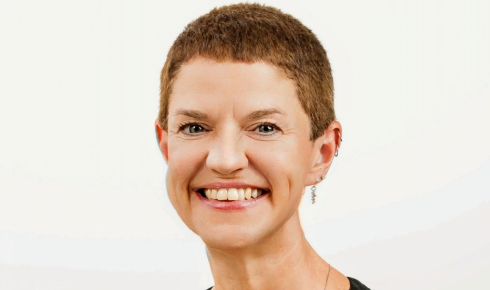
I think this was one of the most difficult periods of my career, but also the most exciting. I was fortunate to have a hugely supportive boss when I was a postdoc, and he really encouraged me to explore my own ideas and submit Fellowship applications. That made a huge difference and boosted my confidence.
I was lucky to secure an independent Fellowship for two years that gave me head space to get preliminary data and write a larger Fellowship application. Having time to think and drive your own ideas forward – and getting as much feedback as you can – are critical to help make that jump to independence.
Be careful what you wish for! Think hard about what it is you enjoy and which roles you could see yourself loving and excelling in. Taking steps up in any career can come with caveats, such as leaving behind the things you really enjoy. I advise that you speak to the people currently working in the roles you’re interested in to gain an understanding of what it takes to do those jobs and ask them how they got there. This can really help to shape your thinking and planning – and if it takes you in a different direction, then that’s fine too.
Professor Martin J Cann FRSB, head of the Department of Biosciences, Durham University

Aside from having a strong CV, I can think of two less tangible things that I consider essential in helping my move from postdoc to PI. First, I was passionate about what I was doing and I was creative in my project, trying out ideas. Second, I discovered I was resilient. We had a saying when I was a postdoc: “It’s just science sciencing.” That was a personal method for dealing with every failed experiment – there were many of them. Eventually, the successes came and the hard work paid off.
There is more to being competitive for a PI post than high-quality research outputs (although they help, of course). The assessment process will also address your potential for undergraduate and/or postgraduate teaching, your ability to undertake administrative tasks, and your communication and interpersonal skills. It’s never too early in your career to examine the personal criteria for the academic roles you aspire to and take advantage of the opportunities to develop a CV for success. For example, you might want to get involved in teaching where you can.
Take advantage of the chance to present at conferences or outreach events to develop and evidence your communication skills. Most institutes have postgraduate and postdoctoral representation opportunities on internal committees too. Even as an undergraduate, it’s incredible what opportunities exist through outreach or scholarly societies. By doing these things, you can build a rounded and successful CV.
Dr Alper Akay, UKRI Future Leaders Fellow; head of RNA (epi)Genetics Group; and director of innovation, BIO, Biomedical Research Centre, University of East Anglia
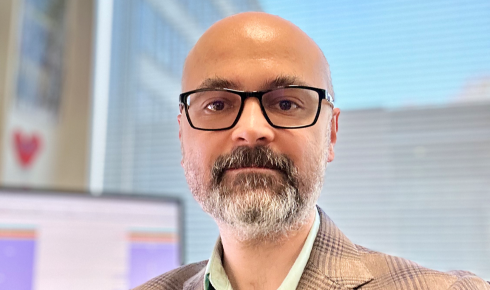
Looking back, several factors were crucial for my success in receiving my UKRI Future Leaders Fellowship and establishing my group at the University of East Anglia.
I was fortunate to work in a laboratory that cared about long-term support and I started my postdoctoral research with a five-year contract, meaning I had sufficient time to complete multiple projects. For many years I also organised the Cambridge RNA Club, which required me to contact many scientists locally, nationally and internationally, helping me to build my profile.
I also had to move to a different lab at the end of my postdoc due to the funding ending. While initially daunting, I ended up with another amazing mentor who offered a completely fresh perspective on Fellowship applications. So it can be beneficial to make a move earlier to gain different views and support.
Generally, if you’re a postdoctoral researcher aspiring for independence, you need to demonstrate evidence of productivity, which is typically reflected in research papers. However, this doesn’t necessarily mean publishing in prestigious journals. I didn’t have any CNS [Cell, Nature or Science] papers. I think it’s important to have a productive track record that shows you can complete projects – people frequently underestimate the time required to finish projects, especially the time from completing experiments to seeing work published even as a preprint.
Postdocs aiming for independence need to start planning their future directions early on. It’s not easy to put together a five-year research plan that distinguishes you and shows good promise for years to come.
Professor Benjamin Schuster-Böckler, principal investigator, Ludwig Institute for Cancer Research
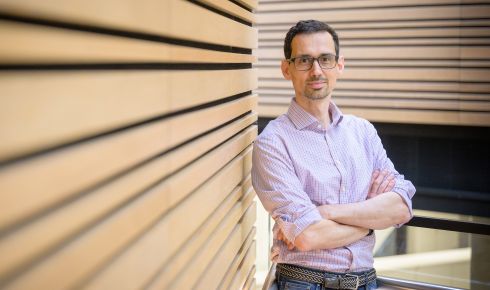
I was fortunate to choose great mentors who helped me find worthwhile scientific problems while giving me enough freedom to find my own direction. As usual in science, a lot of things didn't work as planned – if it wasn’t for a dangerously high level of frustration tolerance, I might have given up too early before eventually stumbling over some truly novel biology.
Obviously, you need to have the right track record to secure a position, as well as a clear idea of a scientific niche that you can occupy as a small laboratory with limited resources. However, beyond all of that, it’s important to keep reflecting on what motivates you. Leaving academia for a while was healthy for me and gave me a much-needed new perspective on what it is I really enjoy doing. When I got the chance to set up my own group, I had a much clearer vision for what I wanted to accomplish. There’s always more than one way to be successful: the most important goal is to find a path that suits you.
Dr Lynne Falconer, research Fellow, Institute of Aquaculture, University of Stirling
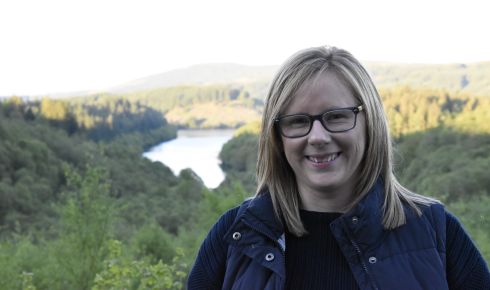
When I was a postdoctoral researcher, I was able to start developing leadership and management skills as a work package leader on a large international project. Although daunting at first, with challenges along the way, I really enjoyed the experience and learned a lot. The most important thing was building my confidence and realising that I wanted to be an independent research leader, driving ideas forward. So I worked on developing my research and career vision, and was then successful in an application for a UKRI Future Leaders Fellowship, which has enabled me to establish my own team and pursue my research goals.
It’s useful to set career goals, but also to recognise that circumstances change, so take time to regularly reflect and review progress as well as the actual goals themselves. It can also be useful to ask for guidance and mentorship from people already in more senior roles.
A mentor can be someone you know, but sometimes it’s helpful to ask someone who could provide a different perspective.
Dr Elinor Thompson, reader, microbiology and plant science, University of Greenwich
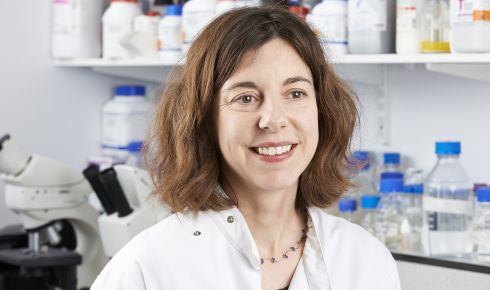
The ability to clearly present scientific data to people outside your field is an obvious essential for interviews. For me, gaining a permanent post was necessary, as a PI or something else, at the point a fixed location for schools became a necessity. I have no advice to give about this difficulty with the timing of life and scientific career, just note it as a continuing problem for postdocs and their choices.
You need to be reasonably flexible about what you are looking for, as you can make your own career in science to some degree. There are some advantages and some disadvantages in all UK labs and institutions – if you survived and look back happily on your PhD, you already know you have the mettle to withstand many challenges.
Professor Tim R. Blower, honorary professor at Durham University; and senior scientist at New England Biolabs, US

A postdoc contract is often only three years, so you have to pick the project carefully. Ask yourself if it will enable you to get papers on your CV so you’re competitive for an independent position. I was advised to change only two out of three variables: location, techniques or field. I moved from Cambridge UK to California and into a new field, but kept my core molecular biology and biochemistry skills.
Think beyond the science and take training opportunities when they come, perhaps mentoring students, giving presentations or helping to write grant applications. Take advice from supervisors, ask questions, go to assistant professors and ask them what they did. Gain demonstrable skills in project management. Learning to manage relationships across groups, and upwards to supervisors, hones interpersonal skills that are vital for running a successful lab. These skills allowed me to more easily transition to new projects.
Take on the responsibility and – though a cliché – understand you’re going to have to work hard. Be certain of what you want; if you don’t enjoy the process of getting what’s needed for those positions, be open to other options, as the pressure doesn’t stop once you have the next job!
Rachel Duffield is editorial assistant of The Biologist


